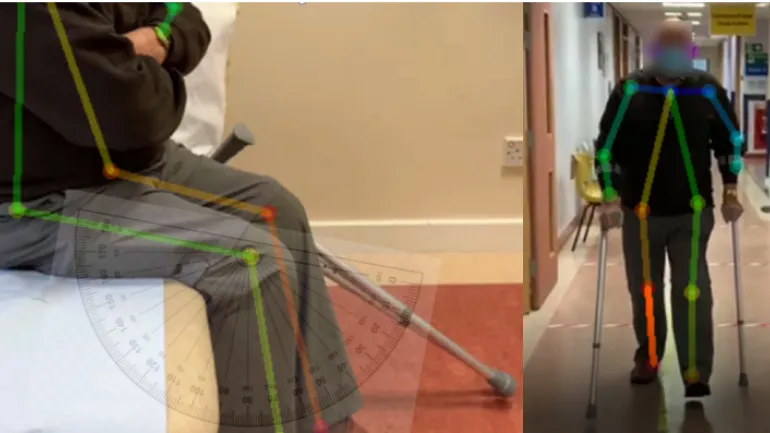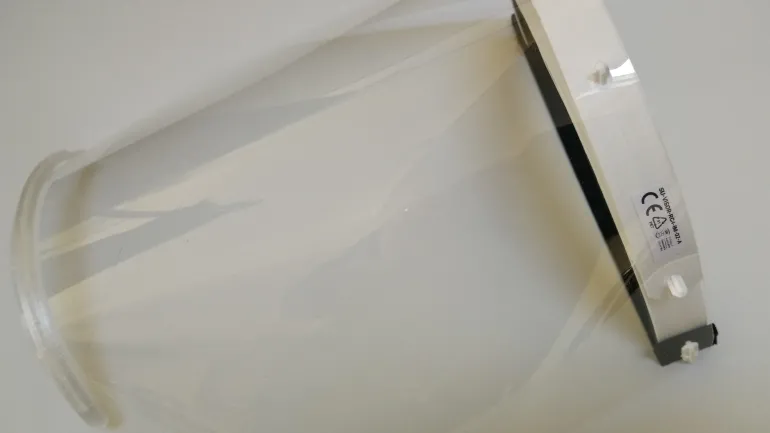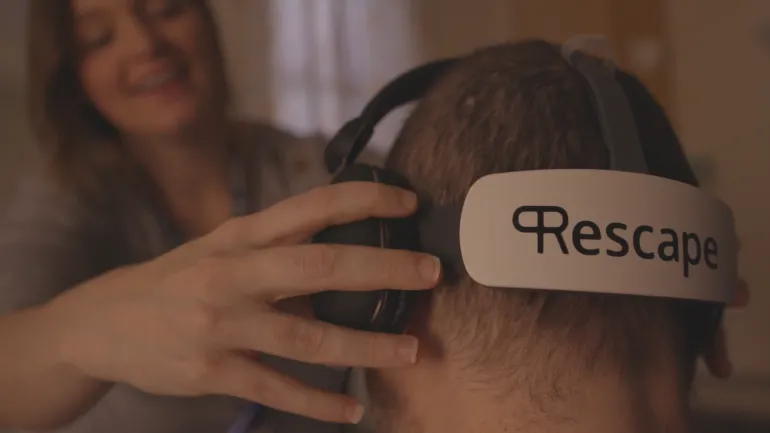To most people, virtual reality is synonymous with gaming, but its potential stretches well beyond into managing complex healthcare issues, such as pain and anxiety.
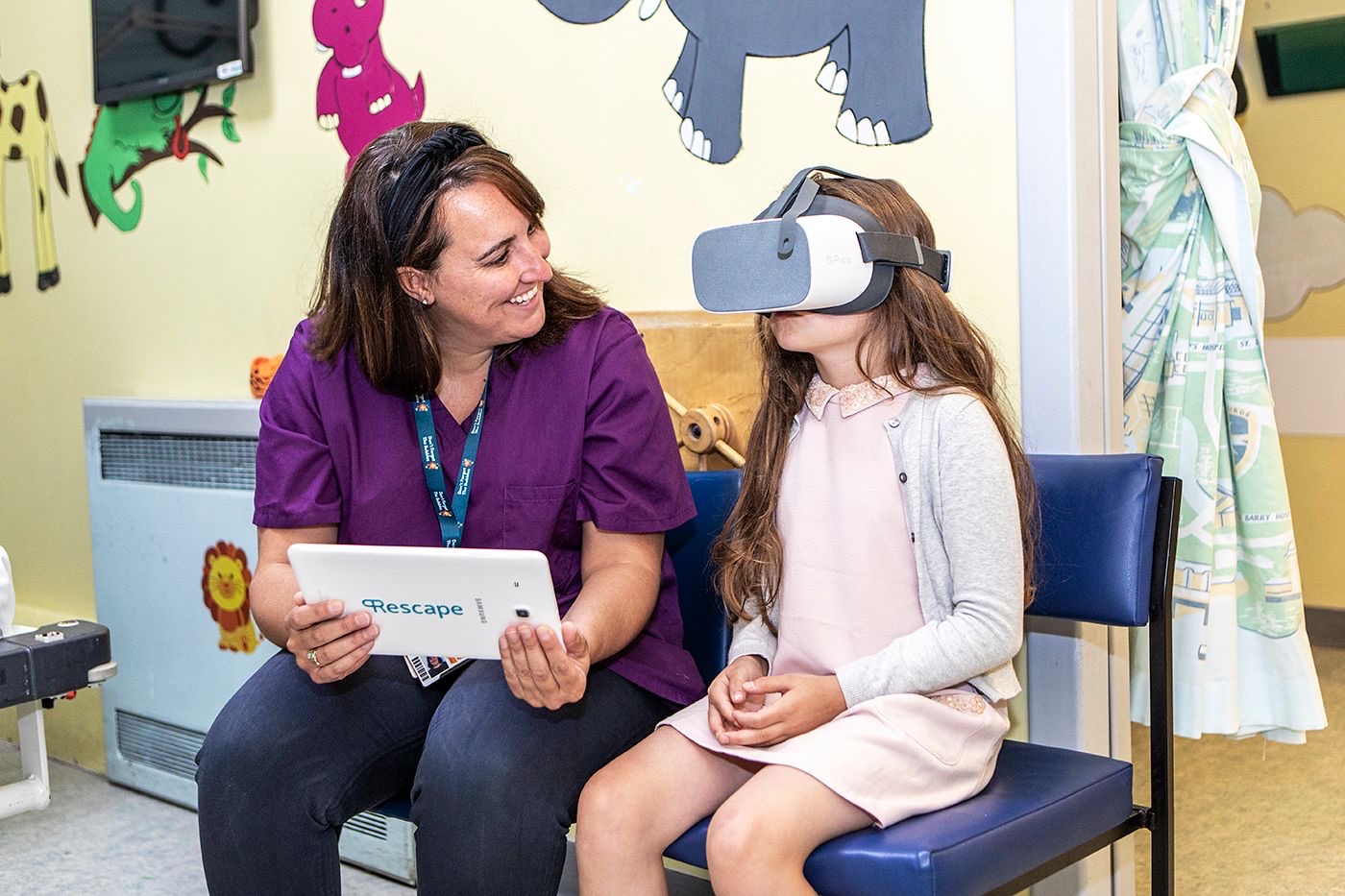
Healthcare virtual reality start-up Rescape Innovation has developed a solution that has shown huge promise in many different healthcare scenarios – pain management, palliative care, dementia care, paediatrics and even supporting healthcare professionals struggling with stress and burnout.
Before it can be implemented at scale in these settings, however, the solution must address several important factors, including safety, usability, comfort with the technology, as well as adjusting for different clinical environments. This is where collaboration with ATiC (Assistive Technologies Innovation Centre) as part of the European-funded Accelerate programme is proving so important to realising commercial objectives.
Testing the DR.VR ecosystem
ATiC’s early research has been focused on looking at how DR.VR is being used in different environments.
According to Dr Sean Jenkins, ATiC R&D lead, feedback on the benefits of the solution have been extremely positive with regards to how it is helping patients. For example, when used with dementia patients who are often disoriented and distressed, DR.VR has helped those individuals to understand where they are, what is happening at that moment in time and even have a conversation with a loved one. Confirmation of these findings will require more clinical trials, and Rescape is working to develop these trials.
Research is also being carried out to determine challenges with how the solution is deployed in different care settings, such as palliative care versus use in an anaesthesiology department. This information will help Rescape to address any potential redesigns needed or the addition of specific features to assist with deployment.
The team asks questions about the kinds of patients using the solution, expectations and objectives when using the system, ease and comfort with deploying the solution, all the way down to opinion about the locks and catches on the box and how users carry the solution.
Sean points out that often small usability issues can affect users’ confidence with expensive equipment so addressing those, perhaps with minor tweaks, can help to encourage greater uptake.
Sean explains:
“Design researchers learn a lot by the way people mis-use products, as this gives us insight into the kind of environment and pressures they are dealing with and why they might have cut corners or missed information.”
Next steps in development journey
The findings ATiC makes in its initial research will help to inform the next stage in the co-development process between Rescape, ATiC and Cardiff University’s Professor of Pharmaceutical Microbiology, Jean-Yves Maillard, who is advising on microbial contamination. The findings will also help to determine whether instructions need to be adjusted for easier understanding and the type of training that might be needed to ensure DR.VR is used to its fullest capacity.
For example, ATiC uses eye tracking capabilities in its laboratory to test whether users are reading instructions as intended, while behavioural observation technologies allow ATiC to assess how many times users deviate from the protocol, make errors or omit steps. Once this information is gathered, ATiC can make recommendations, such as how to change instructions, perhaps with more graphics, to improve understanding.
Find out more about the facilities at ATIC.
Rescape CEO Matt Wordley says
“We need to know our product is being used the right way and, if not, understand why not and ensure we train users on DR.VR’s full capabilities. After all, there is no point in designing an amazing product if you don’t teach people to use it properly.”
VR as a medical device
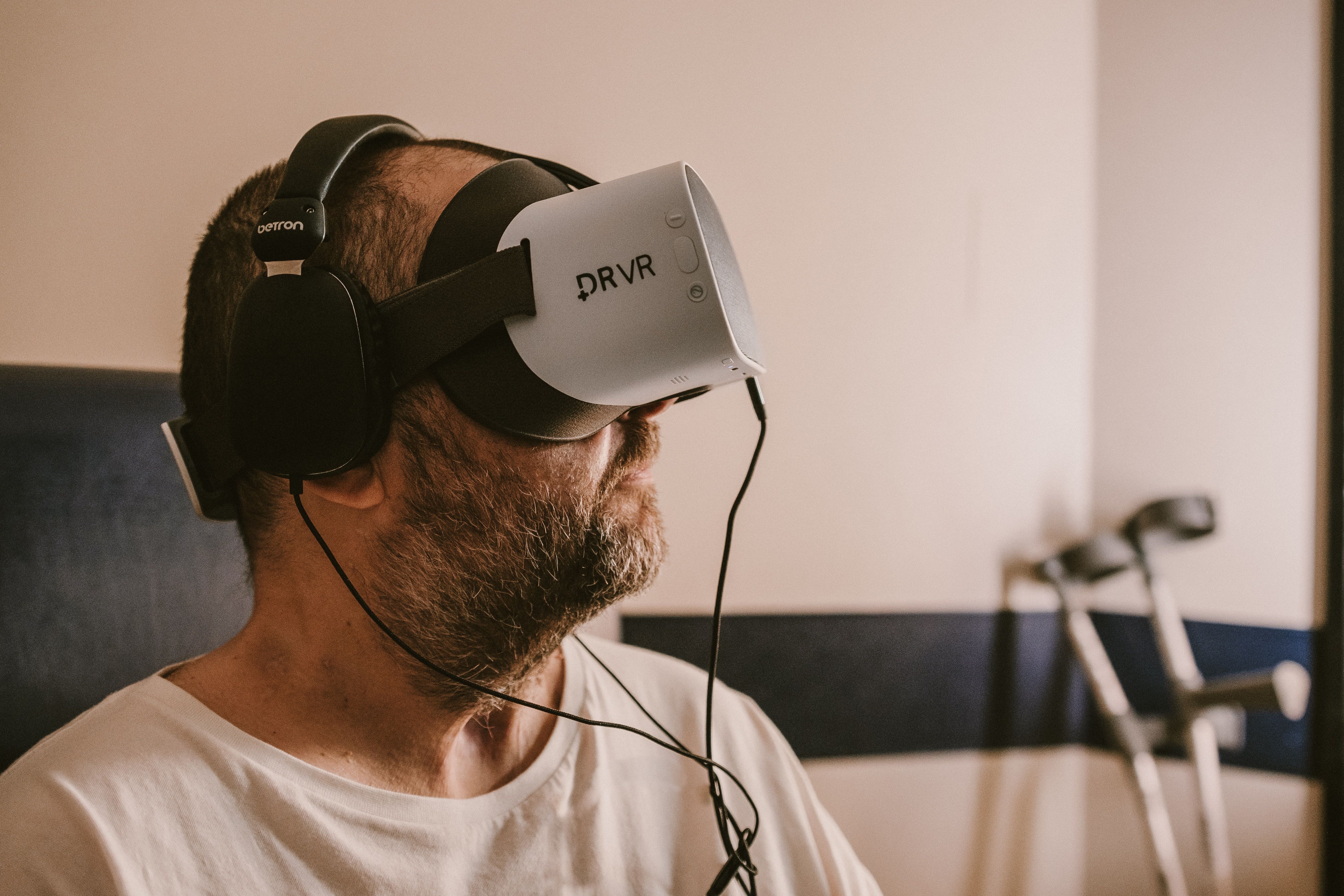
Another important milestone for Rescape is gaining regulatory approval for DR.VR as a medical device. ATiC’s role in that regard centres around usability testing against the British standard and understanding all the risks – whether with regards to infection control in light of the Covid-19 pandemic or potential electrical faults that might occur.
While Rescape has not yet submitted DR.VR for approval, it is working closely with ATiC and regulatory specialists to ensure the product aligns with requirements. And in many ways, Rescape and ATiC are writing the rulebook around use of VR in healthcare – always backed up by the evidence and rigour needed to demonstrate DR.VR’s therapeutic outcomes as a safe, effective therapy to reduce pain and anxiety.
Meet the Innovators:
Dr Sean Jenkins is a Principal Lecturer at the University of Wales Trinity Saint David and leads the research, development and innovation activity at Assistive Technologies Innovation Centre (ATiC) in Swansea. ATiC is part of the European-funded Accelerate programme, a collaboration between three Wales-based universities and the Life Sciences Hub of Wales. The programme helps health and life science innovators in Wales turn their ideas into solutions. To learn more, contact Sean and his colleagues at atic@uwtsd.ac.uk
Matt Wordley is CEO as well as a founding member and architect of Rescape Innovation. Cardiff-based Rescape works to develop virtual reality products that help patients deal with pain, rehabilitation, stress and anxiety by distracting the brain. To learn more, contact Matt and his colleagues at info@rescape.me


